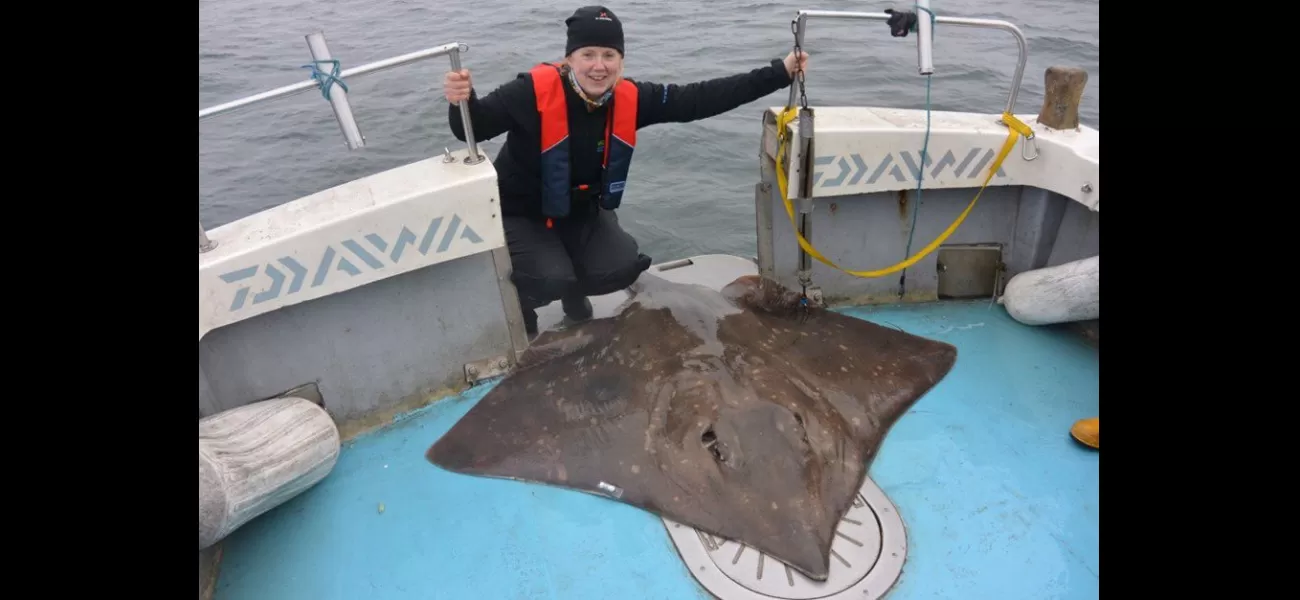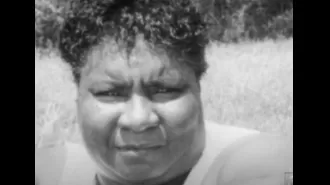Working together is the key to combatting climate change, according to Life With NatureScot.
Operations Officer Jane Dodds discusses marine life in Arygll, her work with the flapper skate, and the effects of climate change on the sea. She was inspired as a child by crabbing and is passionate about protecting the environment.
April 29th 2024.

Jane Dodds, an Operations Officer, has been studying and working with marine life around Arygll for many years. Her passion for the ocean began in her childhood, when her dad and grandad would take her crabbing in rockpools during beach vacations. She was also inspired by her uncle, a scuba diver with a love for marine biology and archaeology. At the age of six, Jane visited an aquarium and was immediately drawn to the underwater world. She learned to scuba dive in the UK and was amazed by the beauty of coral reefs, solidifying her desire to work in conservation.
After studying marine biology, Jane found herself in Oban doing work experience at the Scottish Association for Marine Science. She fell in love with the west coast of Scotland and went on to obtain a Master's degree in Aberdeen. She then received a bursary to pursue a PhD back at the marine lab in Oban. It was during this time that she realized her passion for conservation and the impact of climate change on marine life.
Jane's love for travel led her to join a Royal Geographical Society marine conservation project in Mauritius. She spent two years learning about politics and stakeholder engagement while working on conservation projects. However, she eventually returned to Oban, where she discovered a job opportunity with NatureScot to help manage the marine Special Areas of Conservation near Oban. She has been working there for almost 25 years now, starting her day around 8:30 or 9am.
One of the most rewarding experiences for Jane was witnessing a skate egg hatching and being part of the baby skate's release. She considers herself lucky to have had the opportunity to experience such amazing moments in her career. With the impact of climate change, Jane has noticed an increase in non-native species along the coasts, which is concerning as they can threaten special habitats and species. She also volunteers on conservation projects, including Orca whale and dolphin spotting on the Cal Mac ferries, to counter her frustrations and anxieties about the pace of change.
Jane's favorite animal is the flapper skate, a critically endangered species that can grow up to 2.5m long and 2m across. The area off the coast of Oban, known as the Loch Sunart to the Sound of Jura MPA, is designated for their protection. Local anglers, who have been tagging skate since the 1970s, proposed the site in 2014. With the help of these anglers, NatureScot monitors the site and has created an online database called Skatespotter, where they can identify recaptured skate based on their unique spot patterns. In 2020, Jane had the privilege of witnessing a flapper skate hatch in captivity, a world first for the species. Little is known about the biology of the flapper skate, but recent discoveries have revealed their incubation time of 18 months.
Apart from her work, Jane enjoys spending time outdoors and taking her dog for a walk to decompress. She feels lucky to live in such a beautiful area and be able to enjoy nature. Her experiences with marine life have been truly incredible, from seeing a skate egg hatch to observing over 20 basking sharks around her boat at sunset. To read more about Jane's work and other stories from the Life With series, you can subscribe to the latest issue of Scottish Field.
After studying marine biology, Jane found herself in Oban doing work experience at the Scottish Association for Marine Science. She fell in love with the west coast of Scotland and went on to obtain a Master's degree in Aberdeen. She then received a bursary to pursue a PhD back at the marine lab in Oban. It was during this time that she realized her passion for conservation and the impact of climate change on marine life.
Jane's love for travel led her to join a Royal Geographical Society marine conservation project in Mauritius. She spent two years learning about politics and stakeholder engagement while working on conservation projects. However, she eventually returned to Oban, where she discovered a job opportunity with NatureScot to help manage the marine Special Areas of Conservation near Oban. She has been working there for almost 25 years now, starting her day around 8:30 or 9am.
One of the most rewarding experiences for Jane was witnessing a skate egg hatching and being part of the baby skate's release. She considers herself lucky to have had the opportunity to experience such amazing moments in her career. With the impact of climate change, Jane has noticed an increase in non-native species along the coasts, which is concerning as they can threaten special habitats and species. She also volunteers on conservation projects, including Orca whale and dolphin spotting on the Cal Mac ferries, to counter her frustrations and anxieties about the pace of change.
Jane's favorite animal is the flapper skate, a critically endangered species that can grow up to 2.5m long and 2m across. The area off the coast of Oban, known as the Loch Sunart to the Sound of Jura MPA, is designated for their protection. Local anglers, who have been tagging skate since the 1970s, proposed the site in 2014. With the help of these anglers, NatureScot monitors the site and has created an online database called Skatespotter, where they can identify recaptured skate based on their unique spot patterns. In 2020, Jane had the privilege of witnessing a flapper skate hatch in captivity, a world first for the species. Little is known about the biology of the flapper skate, but recent discoveries have revealed their incubation time of 18 months.
Apart from her work, Jane enjoys spending time outdoors and taking her dog for a walk to decompress. She feels lucky to live in such a beautiful area and be able to enjoy nature. Her experiences with marine life have been truly incredible, from seeing a skate egg hatch to observing over 20 basking sharks around her boat at sunset. To read more about Jane's work and other stories from the Life With series, you can subscribe to the latest issue of Scottish Field.
[This article has been trending online recently and has been generated with AI. Your feed is customized.]
[Generative AI is experimental.]
0
0
Submit Comment





